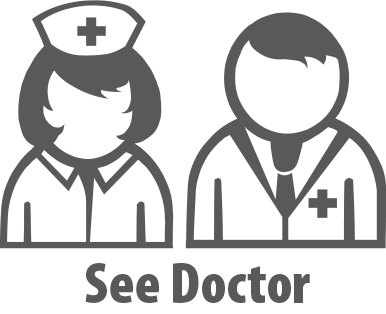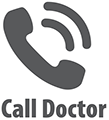Women's Health
Insomnia
Insomnia is having trouble falling asleep. It can last from a single night to a few weeks. It can occur from time to time or be a chronic problem.
Signs & Symptoms
• Waking up during the night and not being able to get back to sleep.
• Waking up too early.
• Not getting enough sleep or getting poor quality sleep.
• Fatigue or feeling drowsy during the day because of lack of sleep.
Causes
• Too much caffeine or having it before bedtime.
• Changes in sleep/wake schedules, such as work shift changes and jet lag.
• Going to bed with a full bladder or any problem that causes you to urinate or have a bowel movement during the night.
• Too much noise when you fall asleep. This includes a snoring partner.
• Menopausal symptoms, such as hot flashes.
• A lack of physical exercise.
• Lack of a sex partner.
• Side effects of some medicines, such as decongestants, corticosteroids, and stay-awake pills.
• Emotional stress. Depression. Anxiety.
• Posttraumatic Stress Disorder (PTSD).
• Fibromyalgia.
• Any condition, illness, injury, or surgery that causes pain and/or discomfort which interrupts sleep.
• Asthma, allergies, and early-morning wheezing.
• An overactive thyroid gland.
• Heart or lung conditions that cause shortness of breath when lying down.
Treatment
• Self-care and prevention measures.
• Treating the problem.
• Prescribed short-acting sleeping pills.
Questions to Ask
Question
01
Do you have trouble falling or staying asleep due to any of these problems?
• Pain or discomfort due to illness or injury.
• The need to wake up to use the bathroom.
• Hot flashes.

You should be seen by your doctor for medical advice. Contact your doctor or health care provider to find out how soon you should be seen.
x
Question
02
Has your sleep been disturbed since you began taking medication of any kind? Or, do you have bothersome side effects from taking prescribed sleeping pills?

Call your doctor or health care provider and state the problem. He or she can decide what you should do.
x
Question
03
Do you still have trouble sleeping after 3 weeks, with or without using self-care?

Call your doctor or health care provider and state the problem. He or she can decide what you should do.
x
Self-Care / Prevention
• Avoid caffeine for 8 hours before bedtime. Caffeine is in coffee, tea, chocolate, colas, and some other soft drinks. Check labels for caffeine content in over-the-counter medicines.
• Avoid long naps during the day.
• Have no more than 1 alcoholic drink with or after dinner. Even though alcohol is a sedative, it can disrupt sleep. Check with your doctor about using any alcohol if you are taking medicines.
• An hour or two before going to bed, dim the lights in the house.
• Before you go to bed, have food items rich in the amino acid L-tryptophan, such as milk, turkey, or tuna fish. Do not take L-tryptophan supplements, though. Eating foods with carbohydrates, such as cereal, breads, and fruits, may help as well.
• Do regular exercise, but not within a few hours of going to bed.
• Before bedtime, take a warm bath or read a book or do some type of repetitive, calm activity. Avoid things that hold your attention, such as watching a suspense movie.
• Keep your bedroom quiet, dark, and comfortable. Use clean, fresh sheets and pillows. Keep the room temperature neither too warm nor too cool.
• Ban worry from the bedroom. Don’t rehash the mistakes of the day as you toss and turn.
• Follow a regular bedtime routine. Lock or check doors and windows, brush your teeth, etc.
• Count sheep! Picturing a repeated image may bore you to sleep.
• Listen to recordings that help promote sleep. Look for them at a library or bookstore.
• If you’ve tried to fall asleep, but are still awake after 30 minutes, get out of bed. Read a relaxing book or sit quietly in the dark. Do this for about 20 minutes. Then go back to bed. Repeat this as many times as you need to until you are able to fall asleep.
• Take over-the-counter sleep aids (e.g., melatonin, Tylenol PM, etc.) as advised by your doctor. Don’t take anyone else’s sleeping pills.
Resources
National Center on Sleep Disorders Research
National Sleep Foundation

Download an offline pdf file.
RELATED ARTICLES
<
>
2021 © American Institute for Preventive Medicine - All Rights Reserved. Disclaimer | www.HealthyLife.com








